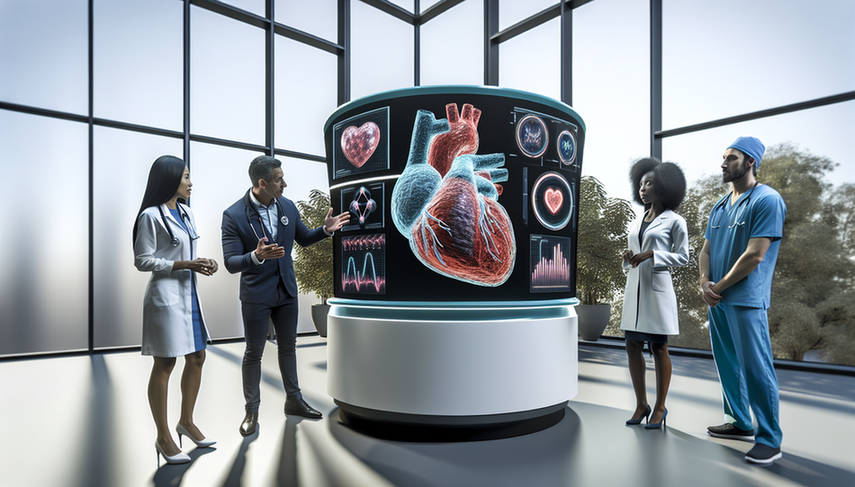Cardiovascular Disease Prevention: Leveraging AI and Risk Algorithms in Preventive Medicine

Cardiovascular disease prevention is a fundamental pillar in preventive medicine. With advancements in technology, artificial intelligence (AI) and risk algorithms have emerged as powerful tools to enhance the accuracy of predicting and managing these diseases. The integration of AI in cardiology not only facilitates earlier diagnosis but also optimizes risk factor management, offering a more personalized and effective approach.
AI and Risk Algorithms in Modern Cardiology
The application of AI in cardiology has revolutionized how we approach cardiovascular disease prevention. A recent study highlights how machine learning models can improve the prediction of cardiovascular events compared to traditional methods, utilizing data from multiple variables to identify risk patterns [1]. Furthermore, AI has proven effective in the early detection of heart failure, significantly improving clinical outcomes [2].
The ability of AI to analyze large volumes of data and discover new risk predictors is particularly useful in identifying non-traditional risk factors. For instance, a study on cardiovascular risk prediction in the UK Biobank demonstrated that AI can identify novel predictors not considered in existing risk models, thereby enhancing the accuracy of predictions [3].
Additionally, AI is being utilized to develop personalized risk models that integrate digital health data and biomarkers, allowing for a more precise assessment of cardiovascular risk and the implementation of preventive interventions tailored to individual needs [4].
Conclusions
The integration of AI and risk algorithms in preventive medicine represents a significant advancement in the fight against cardiovascular diseases. These approaches not only enhance the accuracy of risk prediction but also enable a more personalized approach to patient management, optimizing risk factor management and improving health outcomes. As we continue to explore the potential of AI in cardiology, it is crucial to keep developing and validating these models to ensure their efficacy and safety in clinical practice.
Referencias
- [1] Cardiovascular Event Prediction by Machine Learning: The Multi-Ethnic Study of Atherosclerosis
- [2] Artificial intelligence in the diagnosis and detection of heart failure: the past, present, and future
- [3] Cardiovascular disease risk prediction using automated machine learning: A prospective study of 423,604 UK Biobank participants
- [4] Artificial Intelligence in Cardiovascular Disease Prevention: Is it Ready for Prime Time?
Created 20/1/2025
